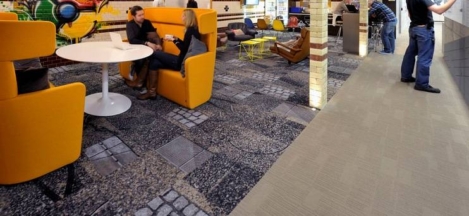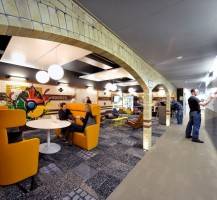March 22, 2016
Manchester refurbished office market thrives due to occupier demand 0
 Approximately 625,000 sq ft (58,063 sq m) of office space in Manchester is set to be refurbished over the next two years as the market responds to continuing demand. According to Savills, Grade B has accounted for an average of 62 percent of the city’s annual take up over the last 10 years, and with Grade A supplies running low the proportion could be even higher in 2016. Despite growing demand for Grade A office space in Manchester over the last three years, annual take up has consistently been under pinned by larger Grade B occupiers seeking to balance high quality offices with value for money. Savills also reports that the TMT sector has taken more Grade B space in Manchester than any other sector over the last five years, with deals totalling 710,889 sq ft (66,042 sq m); a significant increase on the 294,631 sq ft (27,371 sq m) of secondary space let to TMT occupiers in the previous five years.
Approximately 625,000 sq ft (58,063 sq m) of office space in Manchester is set to be refurbished over the next two years as the market responds to continuing demand. According to Savills, Grade B has accounted for an average of 62 percent of the city’s annual take up over the last 10 years, and with Grade A supplies running low the proportion could be even higher in 2016. Despite growing demand for Grade A office space in Manchester over the last three years, annual take up has consistently been under pinned by larger Grade B occupiers seeking to balance high quality offices with value for money. Savills also reports that the TMT sector has taken more Grade B space in Manchester than any other sector over the last five years, with deals totalling 710,889 sq ft (66,042 sq m); a significant increase on the 294,631 sq ft (27,371 sq m) of secondary space let to TMT occupiers in the previous five years.


































March 8, 2016
Eight in ten women believe gender discrimination still prevalent at work 0
by Sara Bean • Comment, Flexible working, Workplace
(more…)